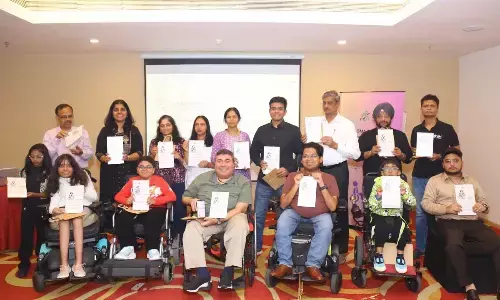Seaweed capsules to bring insulin injection-free life

Seaweed capsules may lead to an injection-free life for diabetic patients, say researchers who have developed a novel method to overcome major challenges in pancreatic islet transplantation.
 Seaweed capsules may lead to an injection-free life for diabetic patients, say researchers who have developed a novel method to overcome major challenges in pancreatic islet transplantation. Pancreatic islet transplantation is an effective treatment that can dramatically reduce daily insulin doses or even eliminate dependence on external insulin.
Seaweed capsules may lead to an injection-free life for diabetic patients, say researchers who have developed a novel method to overcome major challenges in pancreatic islet transplantation. Pancreatic islet transplantation is an effective treatment that can dramatically reduce daily insulin doses or even eliminate dependence on external insulin.
A group of researchers led by professor Amy Shen from the the Okinawa Institute of Technology and Science Graduate University (OIST) has developed a novel cryopreservation method that not only helps to protect pancreatic islets from ice damage but also facilitates real-time assessments of cell viability.
Moreover, this method may reduce transplant rejection and, in turn, decrease use of immunosuppressant drugs, which can be harmful to patient health.
The novel technique employs a droplet microfluidic device to encapsulate pancreatic islets in hydrogel made of alginate, a natural polymer extracted from seaweed. These capsules have a unique microstructure: a porous network and considerable amount of non-freezable water.
"Hydrogel capsules with large amounts of non-freezable bound water protect the cells from the ice damage and reduce the need for cryoprotectants -- special substances that minimise or prevent freezing damage and can be toxic in high concentrations,” the authors noted.
Islet encapsulation reduces the risk of rejection of transplanted cells by the recipient. The hydrogel capsule allows small molecules to pass through the membrane easily but prevents direct contact between implanted islets and host cells.
Encapsulation also may prevent an attack on transplants by the autoimmune response that destroy the patient's own islets in the first place.
The islet transplantation does not require major surgical intervention and is often done under local anaesthesia. It is also cheaper and might be safer than transplantation of the entire pancreas, the team pointed out.
The microencapsulation method can help to overcome some major challenges in pancreatic islet transplantation, including the scarcity of available islets and the lack of simple and reliable control methods.
(The research was published in the journal Advanced Healthcare by the scientists from OIST in collaboration with the University of Washington and Wuhan University of Technology.)

















